The Mormon Church, in an effort to address its troublesome issues, has released a statement on Race and the Priesthood on their website (link here, snarky summary here), which is apparently how revelation happens these days.
Isn’t it interesting that prophets used to write on stone, but now they write on webpages? Perhaps that’s because webpages are easier to edit later.
Addressing the ouchy bits of Church history is a really terrible idea. As I’ve said before, the Church can’t get ahead of its issues because it’s issues all the way down. They can’t explain away the troublesome bits without first acknowledging the troublesome bits, and this is unlikely to lead to a result the Church likes. Here’s why: pretend you’re the Church, and you’re haemorrhaging members. What do you do?
a) Try and chase the questioning members who are leaving.
b) Try and consolidate the faithful.
With this statement, they’ve chosen b), but this will have two effects. It will satisfy the easily satisfied (who will stay in the Church no matter what it does), and it will spook some of the others. And, while this may prove wrong, I’ve read one true believer who says that Mormons are freaking out, inundating the Church Office Building with questions and complaints.
It’s a bad move on the part of the Church, and I’m sure they wouldn’t do it if they didn’t feel like they had no other option. Otherwise, they’d do what they’ve always done: maintain official silence, and allow the membership to invent its own opinions, guided by correlated church materials. The idea that the old strategy is no longer working gives me a warm feeling inside, which of course means it’s true.
So what’s in this statement? Here are the highlights, and for every highlight, there’s a problem.
First, the LDS Church utterly repudiates racism in all its forms.
Good for them. Unfortunately, to repudiate racism, they’re going to have to repudiate the Book of Mormon, which has as a central plot point the idea that dark skin can sometimes be a punishment for sin.
The Book of Abraham has its own problems.
Under the bus with Brother Brigham
The statement stops short of saying the priesthood ban was wrong (which is crucial), but it certainly traces it to Brigham Young. But it’s hard for the Church to take a ‘bad Brigham / good Joseph’ strategy. While Joseph Smith did give the priesthood to a black man once, he also thought that slavery was just dandy; check Steve Benson’s comments at the tail of this story. And the statement ignores the fact that other church leaders on down the line said the same thing for a hundred years.

It explicitly says the less-valiant theory is wrong
This is the crazy folk-doctrine idea that black people were less valiant in the pre-mortal life, so they were born with dark skin and no priesthood in this life. Can you believe it? Where do people get this stuff? Oh yeah, from the First Presidency.
Okay, so what are some of the implications of this new church statement?
This statement obliterates the Church’s claim that the prophet can never lead the Church astray.
They do teach wrong things, which then have to be corrected. Which means that the LDS Church looks exactly as it would look if it were just led by people.
Using a prophet as a guide is a bad idea.
They’re supposed to get it right, but ‘prophets, seers, and revelators’ got this issue dead wrong (by the Church’s own admission) for more than a century. So what are they getting wrong now, that will need to be repudiated in 50 years? (Hint: starts with LGBT.)
Isn’t it a bit of a coincidence that God, a transcendant being who exists outside of space and time, holds prejudices that reflect in precise detail the prejudices that are general among the human population? Until he gets updated — to match the exact prejudices of his modern human followers? Isn’t it a bit of a giveaway that Mormon prophets show no better moral judgments than ordinary non-prophets, but do significantly worse? You’d think there would be some kind of consequences for having a god at the head of your church, but if you talk to Very Sophisticated Mormon Apologists, then there are no consequences really; the prophets are imperfect men in a socio-historical context blah blah blah. Well, then what are they good for? And why should I listen to them? I can get loads of ideas from imperfect people in a socio-historical context — there’s no shortage of them, and some of them have quite good ideas. I don’t really need or want to listen to racists. Or sexists or homophobes, for that matter.
This statement is an indicator as to the bind the LDS Church is in.
Leaving the issue alone allows confusion and discontent to percolate through the membership. Addressing it directly exposes a mass of inconsistencies. Either way, it’s a lose-lose for the church.
Apparently this is going to be a series. I can hardly wait for the next ones!
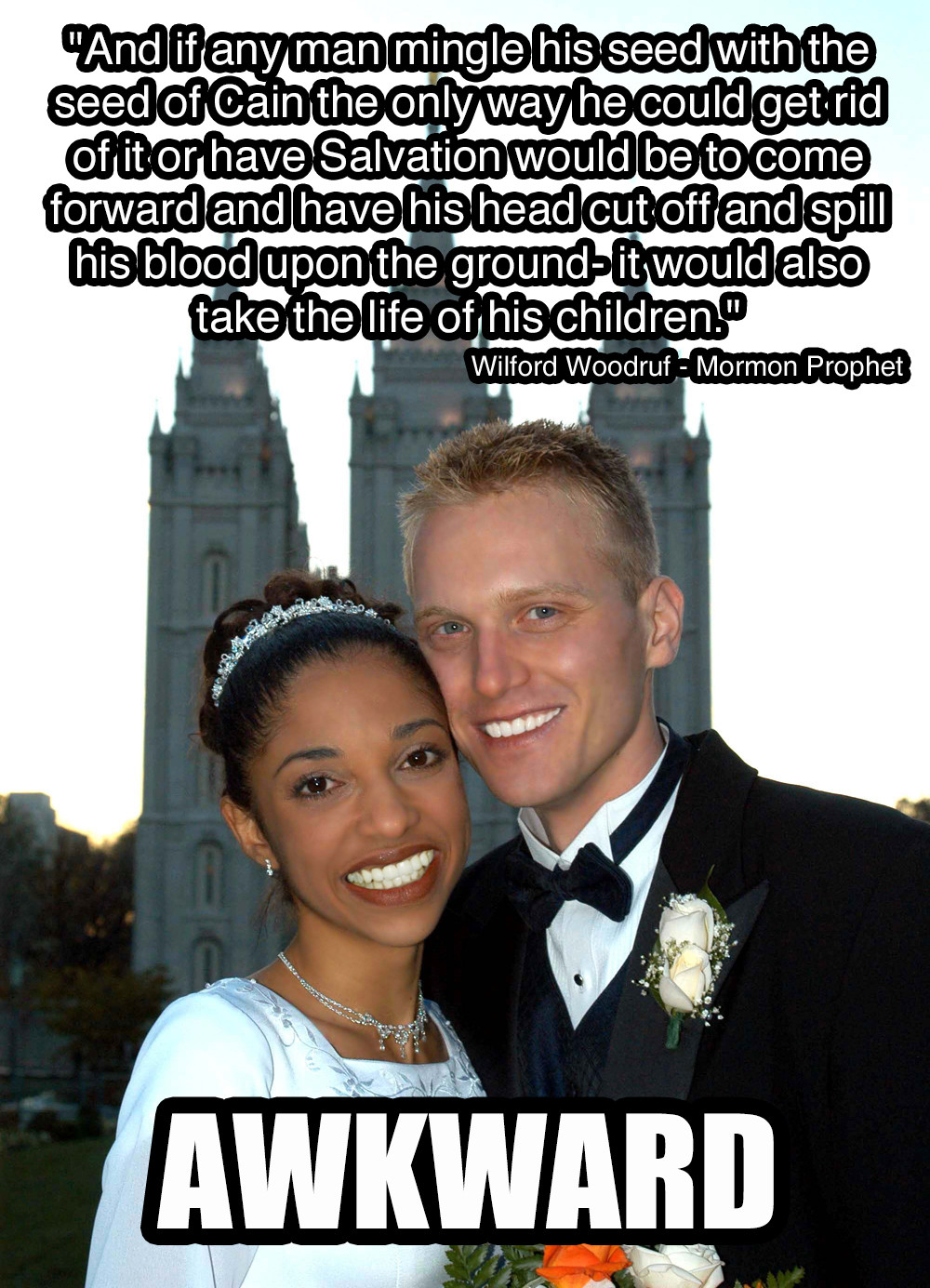
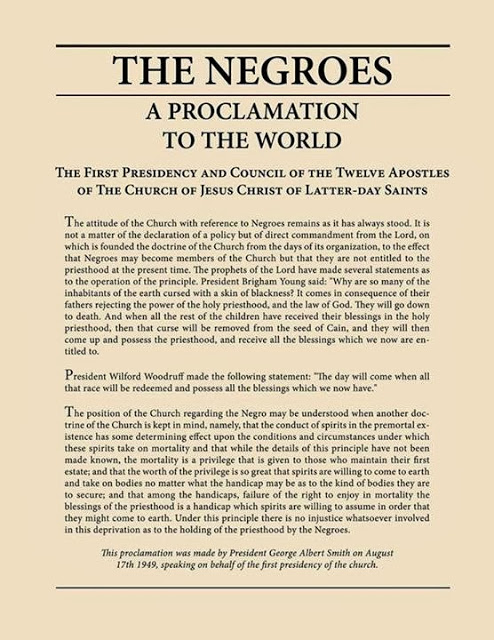

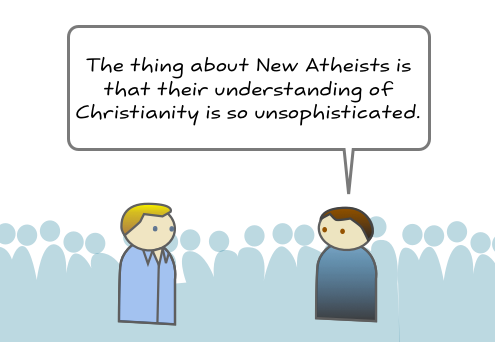

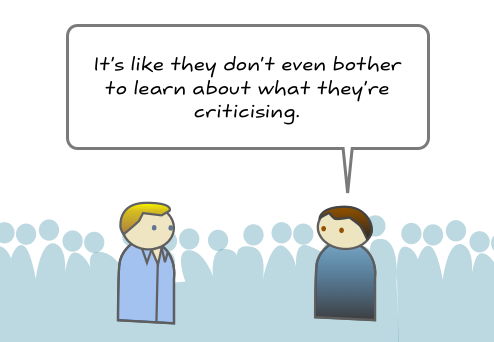
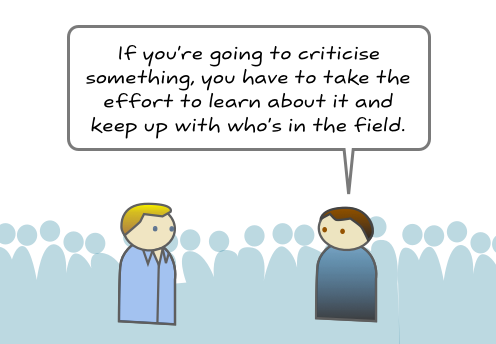
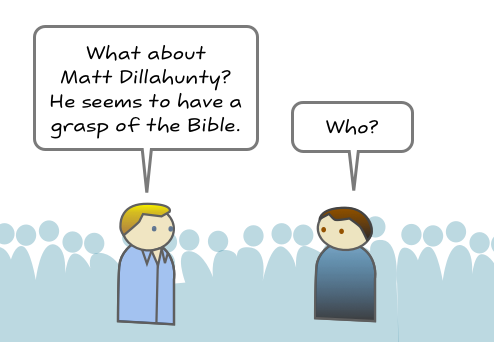
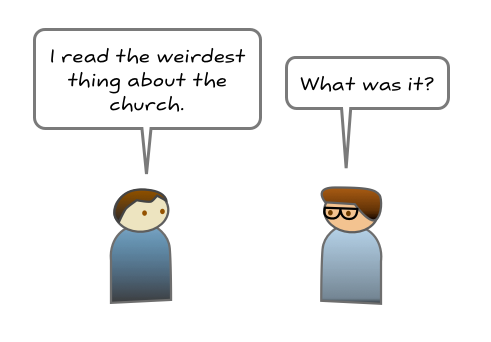
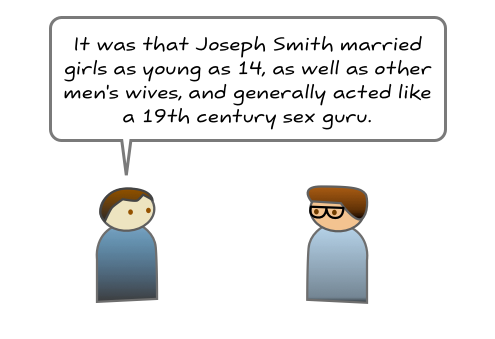

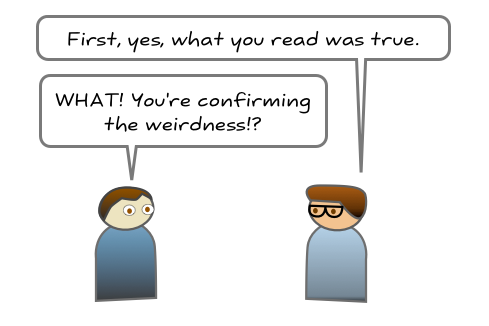
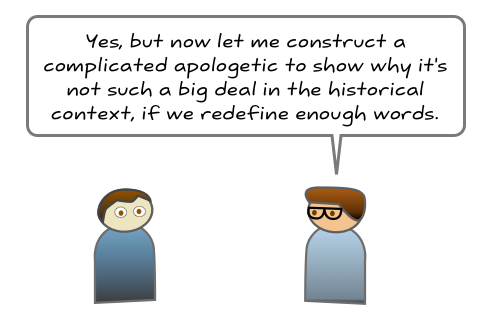
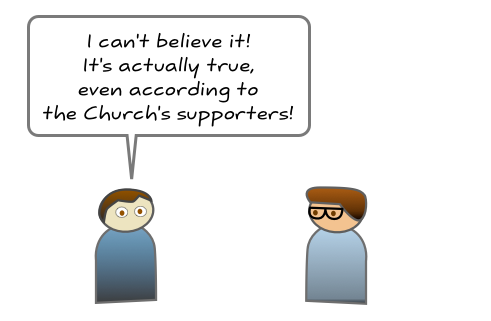
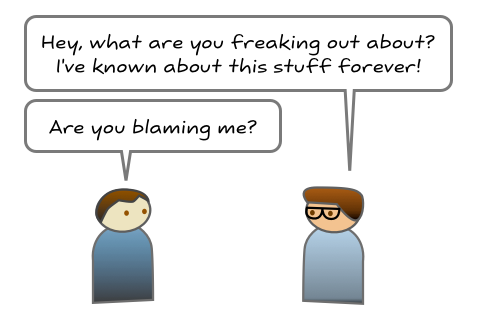
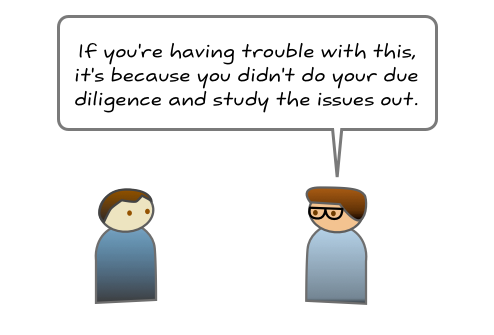

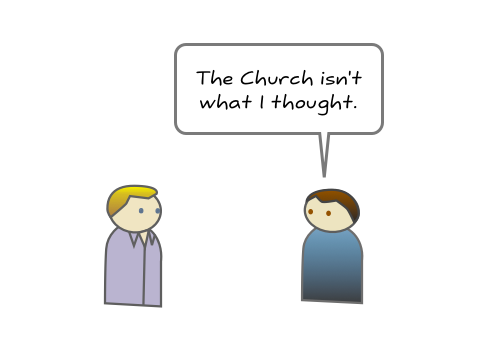
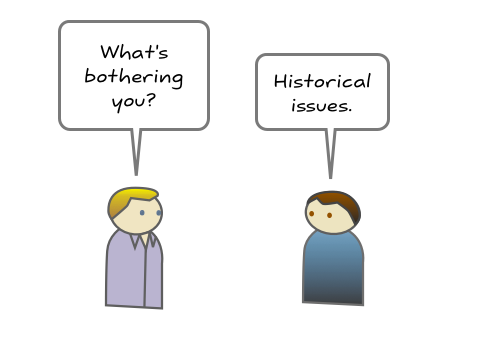


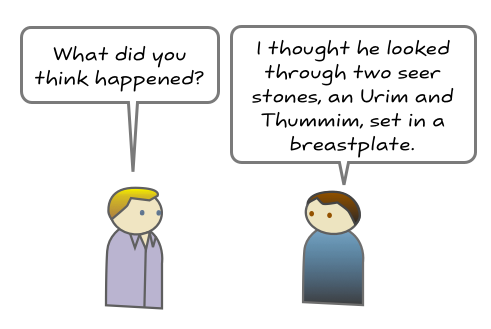
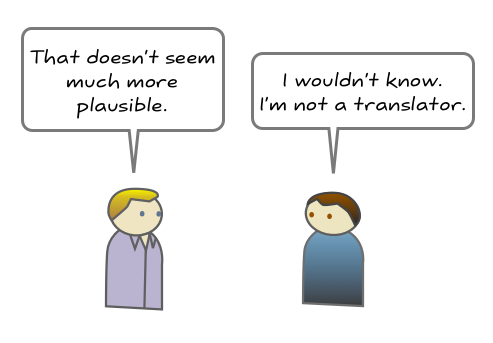
Recent Comments